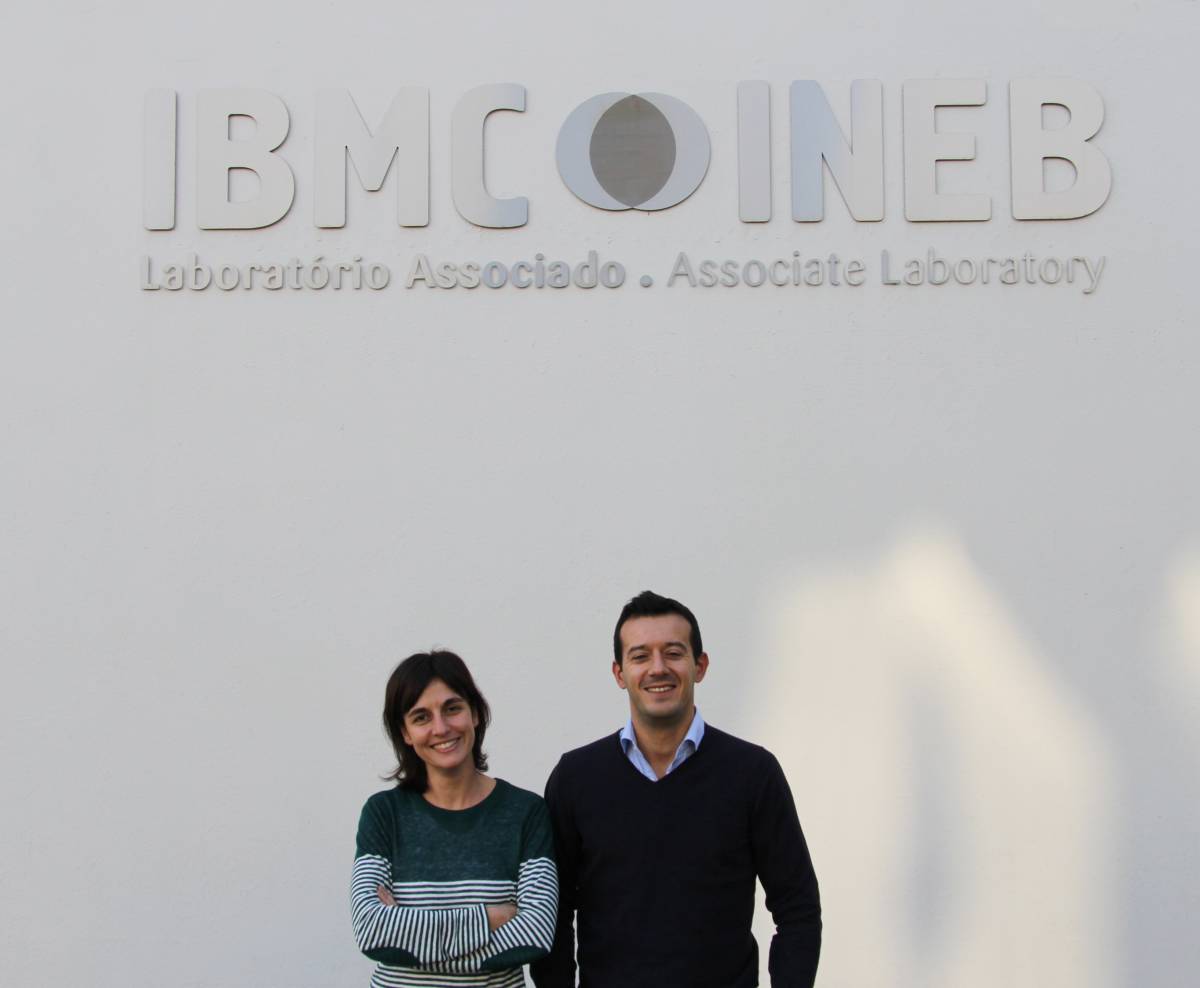

instituto de biologia molecular e celular | institute for molecular and cell biology
His name is Nuno Alves. Hers is Ana Carvalho. They are former GABBA students and, together, they raked in over 3 million Euros for Portuguese research, which this year has already received a total of 5 Starting Grants from the European Research Council (ERC). This funding was obtained through the most prestigious and competitive European program. ERC grants are the most generous Europe-wide and they’re awarded to senior researchers' individual projects – the Consolidator Grants – and to young scientists carrying out innovative lines of research.

Ana Carvalho proposes the use of a nematode – Caenorhabditis elegans – to study cell division, particularly the final phase, cytokinesis. It is during cytokinesis that a contractile ring is assembled and ultimately divides the two daughter cells. Several laboratories the world over have strived, for over half a century now, to understand the cell division mechanisms, but “the research on cytokinesis has been focusing, for the most part, on signaling mechanisms that determine when and where the contractile ring is assembled”, explains Ana Carvalho. According to Ana, in the project that is now being funded, she intends “to broach fundamental questions concerning the structure and the functional properties of the contractile ring itself”. In pursuance of that goal, Ana and her team will rely on the potentialities of microscopic images to develop qualitative and quantitative trials on C. Elegans embryos. Ana explains that this species’s embryo “is especially fitting for the study of the contractile ring given the visibility and positioning of the dividing cells, which makes it easier to accurately measure the constriction dynamics”. In other words, the organism’s transparency, the cells’ position in a shape already known, and the available tools allow to easily measure the ring’s width and thickness throughout the process, as well as to keep up with the whole dynamics of the ring’s components resorting to fluorescence microscopy techniques.
Nuno Alves and the team he coordinates devote their work to the study of thymus, an organ responsible for the production and differentiation of T-cells. These essential cells are in charge of the efficient response from the immune system against antigens, i.e. strange elements derived from pathogenic agents, such as viruses and bacteria or even transplanted organs. T-cells are also to blame for autoimmune diseases due to an “erroneous process when T-cells are in formation, which results in the body not recognizing the elements it produces”, explains Nuno Alves. He proposes with his project to understand what type of genetic and epigenetic controls occur inside the thymus, namely in the thymic epithelial cells, which play an important role in nourishing the T-cells’ predecessor cells and, at the same time, in coaching them to correctly function against pathogens without harming the host. The researcher states that “this project has the potential to contribute to one of modern immunology’s greatest challenges – understanding how to modulate the function of thymus -, thus adding up to a crucial advance in the Health Sciences. Understanding how the T-cells differentiate could lead to an explanation on how our body does or does not react to certain infectious diseases, cancer, or how autoimmune diseases develop.
The European Research Council was established in 2007 by the European Union as a pan-European funding organization for forefront research. Nowadays, it is the sole source of financing that enables basic research to pursue bold ideas that could change the face of Science in the near future, with no demands for immediate practical applications. In fact, the purpose of ERC is to spark ideas and foster scientific excellence across Europe, encouraging competition among the best minds, and rewarding creative researchers regardless of age and nationality. ERC’s m.o. is based on “researcher motivation” to promote new ideas and opportunities in every field of research. Since 2007, ERC has financially backed more than 4000 projects across Europe. More specifically, Starting Grants aim to support independent young researchers in the beginning of their career (with 2 – 10 years of experience following the conclusion of PhD) who show scientific promise and present a truly innovative and ambitious scientific proposal. Scientific excellence has remained since the beginning as the main criterion for selection.
Only the ERC Consolidator Grants and Advanced Grants offer larger sums than the ERC Starting Grants. Therefore, and after starting their own research groups this year, Nuno Alves and Ana Carvalho attained the highest level a young researcher is able to reach. They have now 5 years ahead of them to use this money and prove their ideas may redesign Science as we know it.
Home | Site Map | Contacts | Credits | Privacy & Cookies | WHISTLEBLOWER CHANNEL | Intranet | Social Networks |
